VOL 2 ISSUE 2 PUNE RESEARCH SCHOLAR (ISSN 2455-314X) (2016)
2.1 SCHOLAR
Area of Article : All
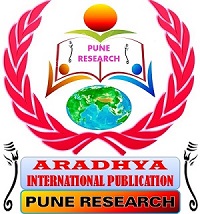
VOL 2 ISSUE 2 PUNE RESEARCH SCHOLAR (ISSN 2455-314X) (2016)
2.1 SCHOLAR

VOL 2 ISSUE 2 PUNE RESEARCH SCHOLAR (ISSN 2455-314X) (2016)
2.1.1

Higher education for young women is
taken for granted nowadays among the upper and middle strata in the cities but
it is still not viewed as an immediate investment in their careers. Social role
expectations affect the aspirations of women both in the educated and uneducated
families. Indian higher education system is one of the largest in the world. It
consists of colleges, universities, institutions of national importance and
autonomous institutions with the status of deemed universities. In this paper
an attempt is made to analyze the gender disparity in higher education evident
across the socio-economic spectrum in India and to study opportunities and
challenges faced by them with regard to their education.
VOL 2 ISSUE 2 PUNE RESEARCH SCHOLAR (ISSN 2455-314X) (2016)
2.2.2

Recent years have seen a growing interest in the pedagogical benefits of digital games, which have the potential to engage learners and to encourage interaction in the target language. The use of digital games in language education is based on the premise that successful learning is integrated into the sociocultural context of learners' lives and encourages collaboration and lifelong learning, bridging learning within and outside the language classroom. However, the potential of digital games has not been properly investigated from a second language learning and teaching perspective. This paper is an attempt to investigate effectiveness of game-based language learning. It also includes discussion of the most recent developments in online digital games.
Key terms: interactive learning, socio cultural context, digital learning platform.
VOL 2 ISSUE 2 PUNE RESEARCH SCHOLAR (ISSN 2455-314X) (2016)
2.2.3
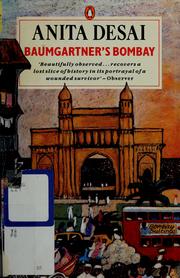
Individuals experience different forms of alienation such as “sense of powerlessness, meaninglessness, sense of fear and insecurity, social, cultural or self estrangement brought on by the lack of fit between individual needs or expectations and the social order.†This alienation could be universal and common to people all over the world. The present paper makes an attempt to study the cultural alienation that is caused by the problems of rootlessness, a sense of not-belonging and the issues involved in the conflicting cultures with reference to Anita Desai’s Baumgartner’s Bombay.
Keywords:
alienation, individual, rootless, self, cultural
VOL 2 ISSUE 2 PUNE RESEARCH SCHOLAR (ISSN 2455-314X) (2016)
2.2.4

This paper depicts the diasporic experiences of Indian migrants in the novel Anita and Me which was written by Meera Syal. Syal is a British English writer who was born to Punjabi parents in Wolverhampton. She uses her personal experiences as an Indian descendant in the novel. She has written two novels Anita and Me and Life Isn’t All Ha Ha Hee Hee. The novel Anita and Me is said to be a semi-autobiographical novel. Syal has brought out the diasporic aspects such as culture shock, alienation, assimilation, common history and myth, formation of ethnic group, longing for home ambience and longing to visit the imagined ancestral home, maintaining religious beliefs and so on. Acculturation and assimilation play a vital role while depicting the diasporic experiences and the novel also depicts the difference between experience of the first and the second generation migrants. Encounter of Eastern and Western ways of life produces hybrid characteristics among the Indian migrants. It is brought out through the attires of Indian characters; their food habits also enfold them in their ethnic community. This paper also represents restrictions that these migrants face in the host land.
Keywords:
Diasporic experiences, assimilation, adoption, cultural differences
VOL 2 ISSUE 2 PUNE RESEARCH SCHOLAR (ISSN 2455-314X) (2016)
2.2.5

Kamala Das is regarded as one of the
most controversial women writers of the 21st century. So, many critics and
researchers had worked on her but still there is something novel in her and her
works to explore about, only because of the mysterious aura which she had left
behind. Every person lives with a mask on his face. He reveals his real face
only at some particular moments. But, in the case of writers, the role that
this mask plays is a bit complicated.
Keywords -Kamala Das, autobiography, domestic issues, Indian women writing.
VOL 2 ISSUE 2 PUNE RESEARCH SCHOLAR (ISSN 2455-314X) (2016)
2.2.6

Apparently following the pattern of the
‘New Woman’ novels that were popular at the turn of the twentieth century, The
Lost Girl is believed to focus on a woman’s struggle to break free of the constraints
of Victorian austerity and to achieve fulfillment according to the dictates of
her own desires. Originally titled as The Insurrection of Miss Houghton, It
chronicles the heroine’s revolt against the stereotype middle class feminine
values in pursuit of a more sensual freedom. But how earnestly this goal is
pursued is revealed by a close reading of the novel. Though superficially it
appears as if the novel were written in accordance with the concept of the New
Woman, Lawrence’s real motives can be easily traced out. Alvina’s transgression
of social conventions, though aimed at a pure freedom, becomes in a way to
suppress her individuality in a male dominated world. As the novel progresses
the antifeminist tendencies start working.
VOL 2 ISSUE 2 PUNE RESEARCH SCHOLAR (ISSN 2455-314X) (2016)
2.2.7

In human beings life teacher plays major
role along with parents, from ancient era, teacher was one of the directors of
human life, without teacher his / her life would incomplete one. In each and
every field, such as war, archery, medicine, agriculture etc. Teacher’s role is
very is important one without teacher we can’t learn anything. For the proper
guidance teacher’s place is important. In the epic “Mahabharata†Pandva leant
each and every things from Dronacharya, without Dronacharya they could not get
an archery knowledge. Teacher teaches moral things and way of life to the students.
When we think that what do you mean by education? The educational psychologist
interpreted that, “Education†means to change in behaviour, change in thinking
and way of life of human being. Education means not only for an employment
purpose and getting money but its main purpose is to create and to develop good
human being, good society and good nation.
VOL 2 ISSUE 2 PUNE RESEARCH SCHOLAR (ISSN 2455-314X) (2016)
2.2.8
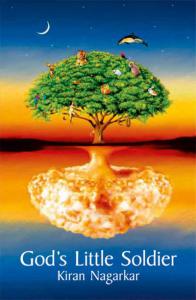
Kiran Nagarkar, the recipient of Sahitya Akademi Award is recognized as a cosmopolitan, experimental, irreverent and visionary. He is one of the significant contemporary writers in the canon of Indian English literature. In Present paper, Kiran Nagarkar tracks the record of his protagonist’s spiritual awakening, discipline, faith, fealty and fortitude in God’s Little Soldier.
He illuminates Zia’s childhood, his immersion in Islamic doctrine at the urging of his devout aunt Zubeida, and his conviction as he grows up that he is destined to be "God's little soldier", a defender of Islamic values in a degenerate and immoral world. Nagarkar shows how Zia has proclaimed his fealty and how he wants to light the path of Allah and bring errant souls back into the righteous fold. Thus the researcher’s attempt is to reveal Zia’s fanatical love for Allah and his extreme desire to stand up for his beliefs and on earth for God.
Key words: Spirituality, fealty, fortitude, zeal, impact of prayer, defender of faith, Islamic doctrines, curiosity for spiritual growth etc.
VOL 2 ISSUE 2 PUNE RESEARCH SCHOLAR (ISSN 2455-314X) (2016)
2.2.9
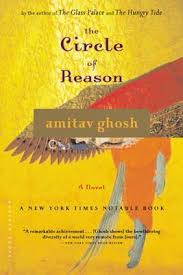
Rootlessness, displacement, migration and quest for identity are some of the Interrelated problems in our contemporary society that draw attention to all the branches of modern academic discourses and evoke adequate sociopolitical and literary responses. The postcolonial Indian English novels explore these issues with enormous critical insight and myriad of interpretations. Amitav Ghosh as a leading voice in the contemporary literature of Indian deals with these interwoven issues against the backdrop of a massive socioeconomic transformation and historical discourses. His heavily researched and richly textured first novel The Circle of Reason (1986) projects these major areas with immense critical illumination and sensitive human approach. He deals with the problem of rootlessness alienation and transcontinental migration in the above novel and relates them to the larger ebb and flow of history, marginality and subalternity. Thus the ordinary people on the move is his central area of fictional exploration against the perspective of globalization and postcolonialism. Hence in this paper I will attempt to discuss Amitav Ghosh’s treatment of the rootless in the foreign lands along with the problem of subalternity and ordinary people’s migration from place to place, from one country to the other.
Keywords:
rootlessness, displacement, subalternity, migration, alienation and
postcolonialism.
VOL 2 ISSUE 2 PUNE RESEARCH SCHOLAR (ISSN 2455-314X) (2016)
2.2.10

According to World Travel and Tourism Council, India will be a tourism hot-spot from 2009 to 2018 having the highest 10-year growth potential. The Travel & Tourism Competitiveness Report 2007 ranked tourism in India sixth in terms of price competitiveness and 39th in terms of safety and security. Despite short- and medium-term setbacks, such as shortage of hotel rooms, tourism revenues are expected to surge by 42% from 2007 to 2017. India's rich history and its cultural and geographical diversity make its international tourism appeal large and diverse. It presents heritage and cultural tourism along with medical, business and sports tourism. India has one of the largest and fastest growing medical tourism sectors.
VOL 2 ISSUE 2 PUNE RESEARCH SCHOLAR (ISSN 2455-314X) (2016)
2.2.11

The objective of any Engineering college is to impart technical - based knowledge education, to develop the professional skills for immediate employment. Due to globalization many well-reputed companies have come into India in search of engineers with excellent communication skills. Any job called for private or corporate sector mainly, demands fluency in English language as an important factor .Apart from technical knowledge, soft skills and commanding proficiency in English language are necessary to work. English language proficiency in a globalizing India is very resourceful and so it open doors into the world of professional employment in India and abroad. Proficiency of a language refers to certain level of competence in skills like Listening, Speaking, Reading and Writing. Hence, communication skills are the basic foundation and integral part of a technocrat.
Keyword: Fluency, Communication, Employment, Proficiency, Language
VOL 2 ISSUE 2 PUNE RESEARCH SCHOLAR (ISSN 2455-314X) (2016)
2.2.12

A dividend decision of a firm is an outcome of various considerations. These considerations differ across time and industry. The present study re-examines various factors that have a bearing on the dividend decision of a firm by using a two-step multivariate procedure. First factor analysis is performed on the data to extract prominent factors from various variables and then multiple regression is conducted on such factors. Results of factor analysis indicate that leverage, liquidity, profitability, growth and ownership structure are the major factors. Regression on these factors shows leverage and liquidity to be the determinants of the dividend policy for Indian companies.
Key words: dividend policy, factor analysis, multiple regressions, leverage, liquidity
VOL 2 ISSUE 2 PUNE RESEARCH SCHOLAR (ISSN 2455-314X) (2016)
2.2.13

आधुनिक
काळात भारतीय महिलांच्या सक्षमीकरणाचा विचार करतांना प्राचीन भारतीय संस्कृती
मधील स्त्रीवादाचा वेध घेणे आवश्यक ठरते.
महिला सक्ष्ामीकरणाच्या संदर्भात महिलांचे शिक्षण, आरोग्य, निर्णय-
प्रक्रियेतील सहभाग अशा अनेक माध्यमातून अभ्यास करणे क्रमप्राप्त ठरते. वेदपूर्व काळ ते आधुनिक काळ या संदर्भात आर्थिक
विकासाच्या प्रक्रियेत वास्तविक पाहता श्रमाच्या पातळीवर महिलांचा हिस्सा
वाढतच आहे. ‘स्त्री सक्षमीकरण’ ही
संज्ञा उच्चारायला आणि ऐकायला चांगली वाटते.
या सदर्भात अनेक कायदेही आहेत पण प्राचीन काळातील स्त्रीची अत्यंत बिकट
अवस्था काही प्रमाणात बदलली आहे का? या संदर्भात या शोधनिबंधातून विविध
अंगांनी प्रकाशझोत टाकण्याचा प्रयत्न केला आहे.
VOL 2 ISSUE 2 PUNE RESEARCH SCHOLAR (ISSN 2455-314X) (2016)
2.2.14

gR;k vkf.k vkRegR;sP;k ?kVuk loZ lkekU; vkf.k loZ
dkGkr lq: vlrkr- ;keqGs vkRegR;k gk v/;;u o fparukpk fo"k; vl.ks LokHkkfod
Bjrs- lkekU;i.ks vkRegR;sP;k dkj.kkpk fopkj lacaf/kr O;DrhP;k thoukrhy
?kVukaP;k lanHkkZr dsyk tkrks- ,fey nqf[kZe gk ifgyk lekt’kkL=kK dh T;kus
vkRegR;k njkpk fopkj lektkP;k lanHkkZr dsyk- vkf.k vkRegR;spk fla/nkar gk ,d
oSKkfud fla/nkar ekaMyk tkrks- vkRegR;k gh pqdhps fdaok vi?kkrkus ?kMysyh rh
ulwu ek.klkus tk.khoiwoZd ?kMowu vk.kysyh gh ,d lkekftd ?kVuk vkgs- R;k ?kVusyk
tckcnkj vkRegR;k dj.kkjh O;Drhp vlrs- Eg.kts T;kosGh O;Drh Lor%gwu Lor%ps
vk;q"; laiowu Vkdkos vlk fu.kZ; ?ksrs R;kposGh rh vkRegR;k djrs-
VOL 2 ISSUE 2 PUNE RESEARCH SCHOLAR (ISSN 2455-314X) (2016)
2.2.15

29 foba`uvaarI 2016 laa maaodI sarkarcyaa vatInao laaoksaBaot koMd`Iya Aqa-maM~I A$Na jaoTlaI yaaMnaI Aaplaa 2016 ¹ 17 yaa vaYaa-saazIcaa Aqa-saMklp saadr kolaa.Aqa-saMklpIya AMdajap~k maaMDtanaa saumaaro ek tasa caaLIsa imainaTaMcyaa BaaYaNaamaQyao ekdahI %yaaMnaI saMrxaNa xao~acaa¸ saMrxaNa bajaoTcaa ]llaoK na kolyaamauLo AaScaya- vya@t kolao jaat Aaho. vaastivak pahta Aaplyaa saImaaMcao saMrxaNa krNyaasaazI sarkar iktI Kca- krto¸ yaakDo %yaa doSaatIlaca navho¸ tr saMpUNa- jagaacao laxa laagalaolao Asato.Amaoirka AaiNa caIna yaaMcaa saMrxaNa xao~atIla Kca- va Baart saMrxaNaavar krt Asalaolaa Kca- yaacaI naohmaIca tulanaa haot Asato.%yaamauLo savaa-Mcao laxa Aqa-saMklpat saMrxaNaat haot Asalaolyaa trtudIMcyaa AakDovaarIkDo Asato.
VOL 2 ISSUE 2 PUNE RESEARCH SCHOLAR (ISSN 2455-314X) (2016)
2.2.16

fuexkao
gs xko iq.ks ftYgîkkrhy [ksM rkyqD;kr fHkekunhP;k dkBh olysys vkgs- ;k xkokph
izkd`frd jpuk lafeJ Lo:ikph vkgs- xkokP;k nf{k.k gn~nho:u fHkek unh okgrs-
nf{k.ksdMwu tltls mRrjsdMs tkos rlr’kh izns’kkph maph ok<r tkrs- xko
fHkekunhP;k eSnkukr olys vkgs- xkokP;k mRrjsdMs Mksaxjjkax vkgs- R;k jkaxkuk
osxosxGh LFkkfud ukos vkgsr- ;k Mksaxjkaoj vusd vks<s mxe ikorkr vkf.k
nf{k.ksdMs okgr tkÅu fHkek unhl feGrkr-
VOL 2 ISSUE 2 PUNE RESEARCH SCHOLAR (ISSN 2455-314X) (2016)
2.2.17

Hkwe.Myhdj.k ds dkj.k tulapkj ek/;eksa dk nk;jk
O;kid ,oa foLr`r gks x;k gSA uobysDVªkWfud ek/;eksa esa baVjusV vf/kdka”k
tuleqnk; nokjk cksyh ,oa mi;ksx esa yk;h tkusokyh fganh dks vusd yksxksa rd
igqapkus dk dk;Z dj jgk gS ÞbaVjusV dks fganh esa egktky dgrs gSA egktky vkSj
dqN u gksdj lax.kdksa dk ijLij lac/n ,slk tky gksrk gS ftlds tfj, nqfu;k Hkj ds
yksx ladsr LFkyksa dh tkudkjh dk iBuikBu vknku& iznkuÊ lans'k ;k lwpuk izs"k.k ,oa Lohdkjkfn dk;Z dj
ldrs gSaA ijLij tqMs lax.kdksa dk fo'oO;kih leqnk; gksus ls mls egktky dgk tkrk
gSA ;g egktky baVjusV miHkksDrkvksa dks ,d nwljs ls tksMus dk egRoiw.kZ dk;Z
djrk gSA Þ1 osc ehfM;k ds izfr yksxksa dk vkd’kZ.k fnu c fnu c<rk tk jgk gSA
baVjusV euq’; thou esa izos”k dj mUgsa izHkkfor dj jgk gSA
VOL 2 ISSUE 2 PUNE RESEARCH SCHOLAR (ISSN 2455-314X) (2016)
2.2.18
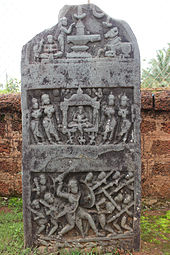
VOL 2 ISSUE 2 PUNE RESEARCH SCHOLAR (ISSN 2455-314X) (2016)
2.2.19
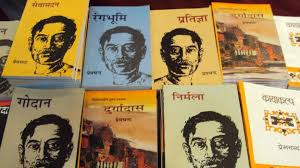
Ekkuo thou dk laiw.kZ fp=
gh miU;kl gSA mldh ;FkkFkZrk ,oa izdkjkarj ls lkFkZdrk bl ckr ij fuHkZj djrh gS
fd miU;kldkj fdrus l'kDr #i ls lekt ds pfj=ksa dks lgh #i esa viuh ys[kuh }kjk
mHkkj ik;k gS ;k ughaA ge dg ldrs gSa fd ekuo thou dk fo’ys”k.k gh miU;kl dk ewyk/kkj gSA ge dg ldrs gSa fd
ekuo thou dk fo’ys”k.k gh miU;kl dk ewyk/kkj gSA pfj= fp=.k gh miU;kl dk lkj
gSA blds fcuk ik= v/kwjk jgsxk miU;kl fy[kk ugha tk ldsxkA vr% miU;kl ds ik=
lgt lizk.k vkSj fo’oluh; gksus pkfg, ftlls miU;kl i<+rs le; ikBd dks lnSo ;g
vuqHkwfr gks fd og ,d thoar lkxj dh ygjksa esa >we jgk gS] mu ik=ksa dh
Hkkoukvksa esa og cg jgk gSA pfj=&fp=.k u dsoy miU;klksa dk vfuok;Z rRRo gS
vfirq og vkt ds miU;kl dk es#naM Hkh gSA okYVj ,yu dk dguk gS& ^^egku pfj=
ds vHkko esa dksbZ Hkh miU;kl egku ugha cu ldrk**A